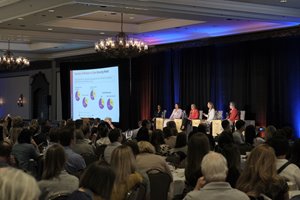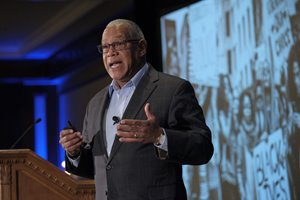As a summer Co-op Student at CIP, I had the opportunity to virtually attend Elevation 2.0, CIP’s first Annual Conference since 2019. The conference featured sessions on a variety of planning-related topics, highlighted award and scholarship winners, and hosted both the CIP and PIBC Annual General Meetings. As the conference comes to a close, I’d like to highlight some of the sessions and speakers below.

The conference kicked off on July 6th with a Keynote Panel on Housing and Planning, which wasmoderated by Dr. Ren Thomas RPP, MCIP, award-winning researcher and author, and featured panelists Lilian Chau RPP, MCIP, CEO of Entre Nous Femmes Housing Society, Dr. Esther de Vos, Executive Director of BC Housing’s Research Centre, Deana Grinnell RPP, MCIP, Executive Vice President, Real Estate, Canada Lands Company, and Patricia Roset-Zuppa, Vice-President, Policy Development, Canada Mortgage and Housing Corporation (CMHC). The panel brought together a variety of perspectives on how best to achieve equitable and affordable housing across Canada and in British Columbia. “We all [the public, private, and non-for-profit sectors] have so much to bring to the table,” Grinnell said, “the challenges are very real for each of us, and the more we understand those and figure out those solutions, the better off we’ll be.” The panellists discussed recent successes in some projects, underscored the importance of partnerships and flexibility, and emphasized the role of all sectors in meeting a variety of housing needs.

On day two, Mitchell Silver FAICP’s keynote, Planning and Designing Equitable Places for All, was a truly inspiring and memorable presentation about his time as Commissioner of the New York City Department of Parks, where he was instrumental in transforming the city’s public spaces. Mr. Silver, FAICP, began by discussing the role of planners and how they are fundamentally concerned with protecting the public welfare and acting as guardians of the future. He described the public health importance of parks and greenways, which “became our sanctuaries of sanity during COIVD because they have the power to heal and bring joy.” He spoke about how public spaces, particularly parks, play an important role in fostering a sense of community and inclusion. He also noted that by transforming previously decrepit parks, local community members were empowered to become stewards, helping to keep the renovated parks in good condition. These beautified parks also fostered a sense of dignity andbelonging, where community members felt a sense of care and responsibility over their public spaces. It was a truly moving presentation.
I also had the opportunity to take in a highly interactive session with Lindsay Chase RPP, MCIP, Director of Planning, Town of View Royal, and Dr. Pamela Shaw RPP, FCIP, Director/Master of Community Planning Program, Vancouver Island University, called Beating Bad Arguments: Explaining Why You Are Right. Underscoring the relevance and importance of the session topic to planners, Lindsay Chase explained that “the quality of our lives and the quality of the built environments that we work to produce depend precisely on the quality of our thought.” The speakers identified logical fallacies to be aware of, provided examples relevant to the planning profession, and concluded with an exercise for participants to apply what they had learned.
In Transport 2050: Key Insights into a Visionary Transportation Plan for Metro Vancouver, speakers Caitlin Cooper, Lead Planner, Strategy Development, TransLink and Saki Aono, Planner, Translink, focused on some of the considerations and engagement strategies that went into developing the plan, as well as a general overview of the plan’s goals and target metrics. Cooper described “TransLink’s biggest public engagement process ever,” which was focused on “hearing peoples values, their vision, and their ideas for the future.”
After watching the conference sessions, I’m eager to learn more about planning, especially since many of the topics covered felt so relevant to the world around me. Housing, Climate Change, Transportation, and Reconciliation were among the most discussed topics, and I enjoyed seeing connections between the content and my lived experience of being a student here in Ottawa.
I am looking forward to future CIP events and learning opportunities, including content from the Navigation 2023 conference in Halifax. For the time being, I’ll be using CIP’s Professional Learning HUB to watch more conference sessions and read up on the planning topics that pique my interest.
You can access photos from Elevation 2.0 via our Facebook albums.
